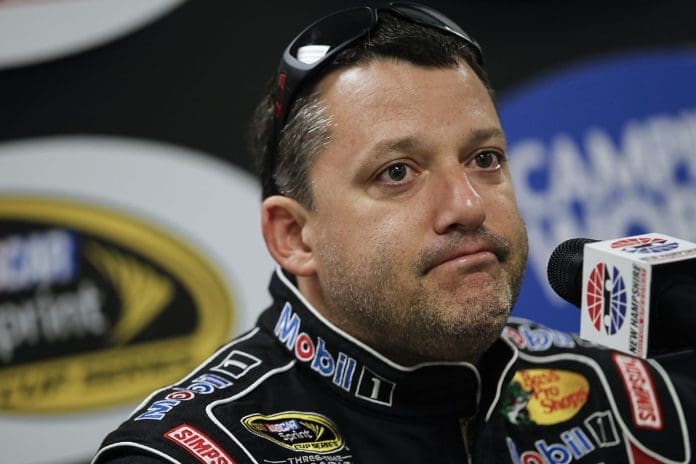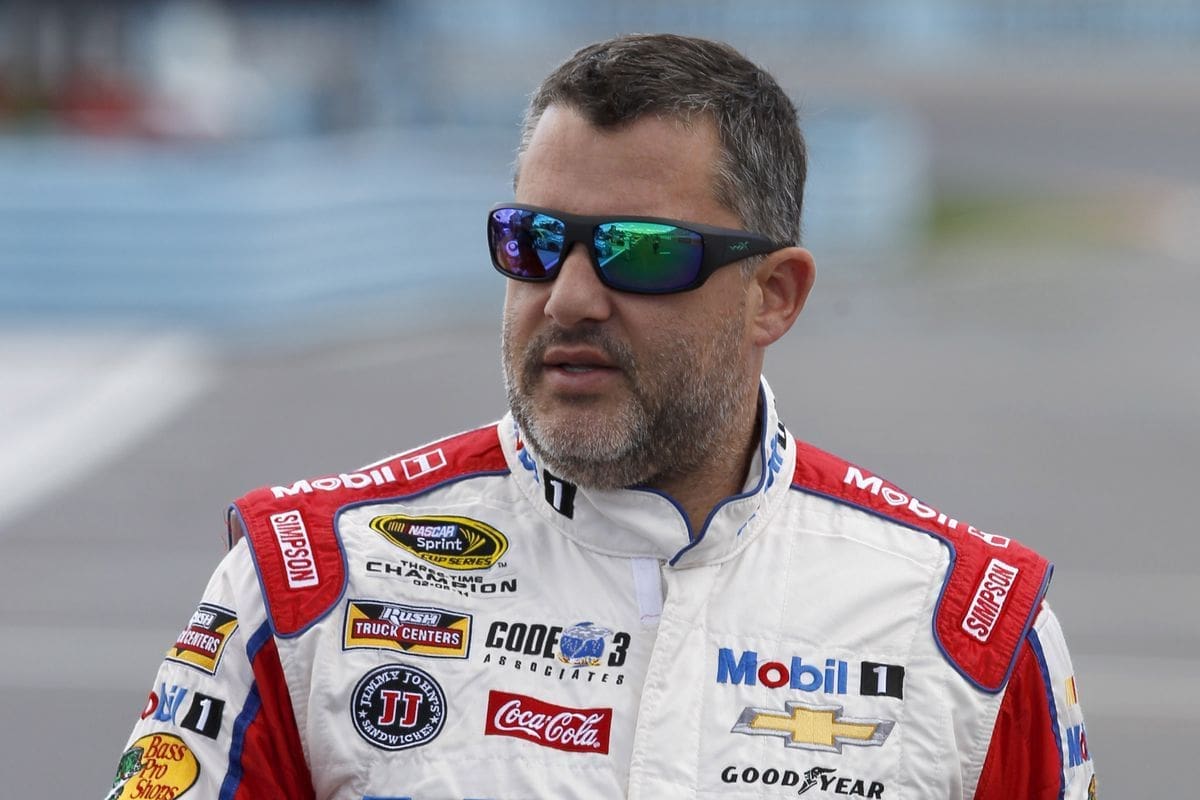Tony Stewart Misses 160M Dollar Deal: The recent legal entanglement between former NASCAR driver Tony Stewart and California businessman Justin McCarthy over a failed $160 million transaction has highlighted the volatile nature of high-value deals within the racing industry. Stewart asserts that McCarthy did not honor an agreement to purchase his All-American Racing team along with several other assets, prompting Stewart to seek damages through litigation. This scenario not only emphasizes the financial risks inherent in such substantial business ventures but also raises questions about the current state and future outlook of NASCAR charter values and the broader market dynamics at play.
Key Highlights
- Tony Stewart reportedly missed a $160M deal, as highlighted by McCarthy.
- The missed deal is linked to the decline in NASCAR charter values.
- Financial challenges have affected Stewart Haas Racing’s market performance and investor interest.
- Negotiation impasses and lack of vision contribute to the missed opportunity.
- Stewart’s on-track results have also diminished the attractiveness of potential deals.
Decline in NASCAR Charter Values
Amid a turbulent period for NASCAR, the value of Cup Series charters has seen a noticeable decrease, impacting the potential returns for teams like Stewart Haas Racing. The once highly sought-after charters, which grant teams guaranteed spots in the races and a share of the prize money, have depreciated considerably in just a year. Tony Stewart and Gene Haas, co-owners of Stewart Haas Racing, are now faced with the reality that selling their four charters will not yield the lucrative returns they may have anticipated.
The NASCAR charter system, introduced in 2016, was designed to provide financial stability and long-term value for team owners. However, the recent downturn has raised concerns about the system’s effectiveness in maintaining charter values. For top-tier teams like Stewart Haas Racing, this depreciation signifies a substantial loss in potential revenue, as these charters were once considered valuable assets that could be utilized for financial gain.
The decline in charter values is particularly notable given the investments made by team owners in infrastructure, technology, and talent. Such investments are critical for staying competitive in the NASCAR racing. With charters now depreciating, the return on these investments is under significant threat, complicating the financial landscape for teams and potentially influencing future strategic decisions.
Factors Contributing to the Decline
The decline in NASCAR charter values can be attributed to a confluence of factors, including an impasse in negotiations over a new charter agreement and lackluster performance by Stewart Haas Racing on the track. This deadlock situation has created significant uncertainty, rendering potential investors hesitant to commit substantial financial resources. Without a clear and stable roadmap for the future of charters, the perceived risk outweighs the potential rewards, leading to diminished market interest.
The protracted stalemate in negotiations highlights a fundamental issue: the absence of a definitive long-term vision for the charter system. This system, crucial to team valuation and operational stability, is essentially in limbo. Teams and investors alike are unwilling to engage in financial transactions without assurance that the charter structure will remain viable and profitable. This uncertainty effectively hampers market activity, contributing to the observed decline in charter values.
Compounding the issue is the performance of Stewart Haas Racing (SHR) on the track. The team’s recent lackluster results have not only ruined its image but have also diminished its attractiveness to potential investors. Investors are naturally inclined to back successful, high-performing teams, as on-track success often translates to higher sponsorship deals and greater revenue streams. SHR’s inability to deliver compelling performances has therefore made it a less enticing investment, further worsening the decline in its charter value.
Evaluation of the Charter Market
Evaluating the current charter market requires a thorough analysis of recent transactions, investor behavior, and the strategic decisions made by key stakeholders. The charter market, a cornerstone of NASCAR’s economic framework, demonstrates notable volatility influenced by different business tactics and market dynamics.
Firstly, recent transactions highlight a shift in charter valuation. McLeod’s strategic sale of a charter for $40 million, yielding a $30 million profit, exemplifies the market’s lucrative potential. This sale emphasizes the significant appreciation in charter value and sets a benchmark for future transactions. However, the prospect of selling multiple charters simultaneously could potentially dilute their individual value.
“It says now that if they tried to do what BJ McLeod did last year for $40 million but sell a basket of four of them, that will probably bring the price down. Because there’s not a lot of people out there who could pay a 160 million up for it, it may bring the price of these seats, charters down and that’s not good for NASCAR people who own these charters.” – Michael McCarthy
Secondly, investor behavior plays a significant role in market trends. Investors, keen on capitalizing on the appreciation of charters, exhibit behaviors that both stabilize and destabilize the market. The sale of a single charter for a high price can attract more investors, driving up demand and consequently, prices. Conversely, bulk sales may flood the market, driving prices down and creating a buyer’s market scenario.
Thirdly, strategic decisions by key stakeholders, such as those by BJ McLeod, reflect a keen understanding of market timing and value maximization. McLeod’s decision to sell a charter individually, rather than in a bundle, was a masterstroke that capitalized on high demand, ensuring maximum profit.
“BJ McLeod looks like Warren Buffett now. If he got $40 million for his charter last year (…) He’s potentially going to get double what Stewart Haas is looking to sell a charter for, just a year or so before. So BJ McLeod looks like Warren Buffett, despite not appearing so at surface level.” – McCarthy
Potential Buyers for SHR Charters
Although offloading the charters presents a significant challenge for Tony Stewart and Stewart-Haas Racing (SHR), several potential buyers are strategically positioned to capitalize on this opportunity to expand their Cup racing operations. According to a report by Jordan Bianchi from Athletic, Front Row Motorsports (FRM) is one of the frontrunners to acquire a charter. FRM, which currently fields two full-time entries—#34 with Michael McDowell and #38 with Todd Gilliland—sees acquiring additional charters as a strategic move to strengthen its presence in the NASCAR Cup Series.
The potential acquisition of SHR charters by FRM would not only increase their footprint in the series but also provide them with greater influence and competitive advantage. This expansion aligns with FRM’s ongoing strategy to diversify and strengthen its racing portfolio. With the Cup Series becoming increasingly competitive, securing additional charters could afford FRM improved sponsorship opportunities and optimized team dynamics.
I think we’re always looking to expand, to be honest with you, and I think this year there’s a lot of chatter about that.” – Jerry Freeze, general manager at FRM
Other teams may also be eyeing these charters, recognizing the value they offer in terms of guaranteed race entries and financial stability. The current market conditions, despite being challenging for sellers like SHR, present a rare opportunity for ambitious racing teams to solidify their status and scale operations. For these potential buyers, the acquisition of SHR charters could be a significant step in their growth strategy, providing the necessary assets to compete more effectively at higher levels.
Outlook for the Future
As the landscape of NASCAR Cup Series charters continues to evolve, stakeholders within the racing community are closely monitoring how these potential acquisitions could shape the future competitive dynamics of the sport. The recent developments involving Stewart-Haas Racing (SHR) and the missed $160M deal have opened doors for teams such as 23XI Racing, Legacy Motor Club, and Trackhouse Racing to explore strategic moves.
23XI Racing: Co-owned by Michael Jordan and Denny Hamlin, 23XI Racing is poised to take advantage of discounted charter rates. This acquisition could enable them to expand their competitive presence and attract top-tier talent, further solidifying their status in the NASCAR ecosystem.
Legacy Motor Club: With a historical footprint in the sport, the Legacy Motor Club is in a unique position to utilize the availability of SHR charters. Acquiring additional charters could not only strengthen their operational capabilities but also enrich their legacy with sustained performance on the track.
Trackhouse Racing: Known for its forward-thinking approach, Trackhouse Racing is actively seeking to add a full-time team to its roster. The acquisition of an SHR charter is crucial for providing seat time to emerging drivers and ensuring a steady pipeline of talent. This strategic move could bolster their competitive edge and drive long-term growth.
News in Brief: Tony Stewart Misses 160M Dollar Deal
The legal dispute between Tony Stewart and Justin McCarthy highlights the complex challenges inherent in business transactions within the racing industry. The decline in NASCAR charter values, combined with the intricacies of evaluating the charter market, influences potential buyers for Stewart-Haas Racing charters.
The outcome of this case could have significant implications for the future of racing team ownership and the financial dynamics governing the sport. Future developments warrant close scrutiny to understand their broader impact.
ALSO READ: Tony Stewart Faces Potential 20M Dollar Loss Amid Charter Rumors




